If you have a depressed person in your life and aren’t sure how to best spend time with them or offer them support or solace, a walk might be just the right thing. Jo Engelkamp tells the small tale of one-third of a local Slow Way, that came along at the right moment
“At 8.25am on Friday morning Hannah rang to say would I like to complete our review of Abemac, Aberystwyth to Machynlleth, and if so she would pick me up at nine. She knew I was depressed, and I knew she needed fresh air and to stride out. I said yes.
At top speed I threw on technical clothing, packed some apples and chocolate and filled a flask with yesterday’s stew. I don’t like the word stew. It was a delicious casserole of organic vegetables from my allotment. I’ve just looked up stew in the thesaurus. It says: troubled, anxious, concerned, fretting, in a panic, worrying. So it was the right word for my mind if not for the food.
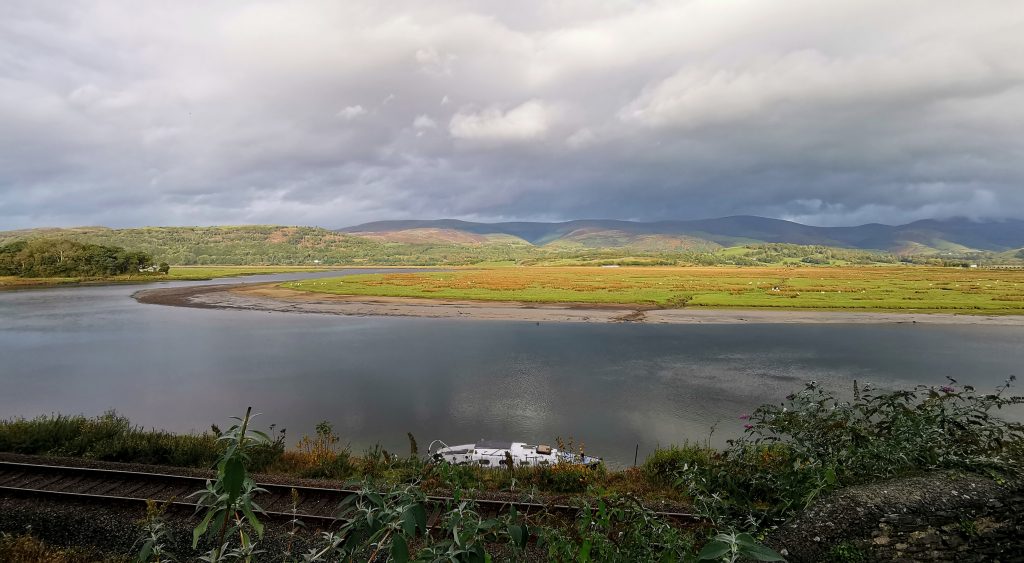
I rummaged about for my boots and was waiting on the doorstep as Hannah and Taliesin drew up. We set out northwards, delivering Taliesin (aged three) to her forest nursery on the way, promising to pick her up again on our way back. We fortified ourselves with coffee at Clettwr, an excellent community cafe and shop ideally placed for walkers of Abemac, and we bought a large chelsea bun for later.
On to Glandyfi bends, where the road has been straightened and the bends have become a lay-by with spectacular views of estuary and hills. We parked, and I did the wordle (chaos) while Hannah made essential work calls.
At last we hoisted our small rucksacks, crossed the main road, and within seconds we were accepted into a different world: a world of leaves and rustles and fluting feathers and mist. Glistening droplets. Smells of otherness… mud, dung, funghi, freshness.
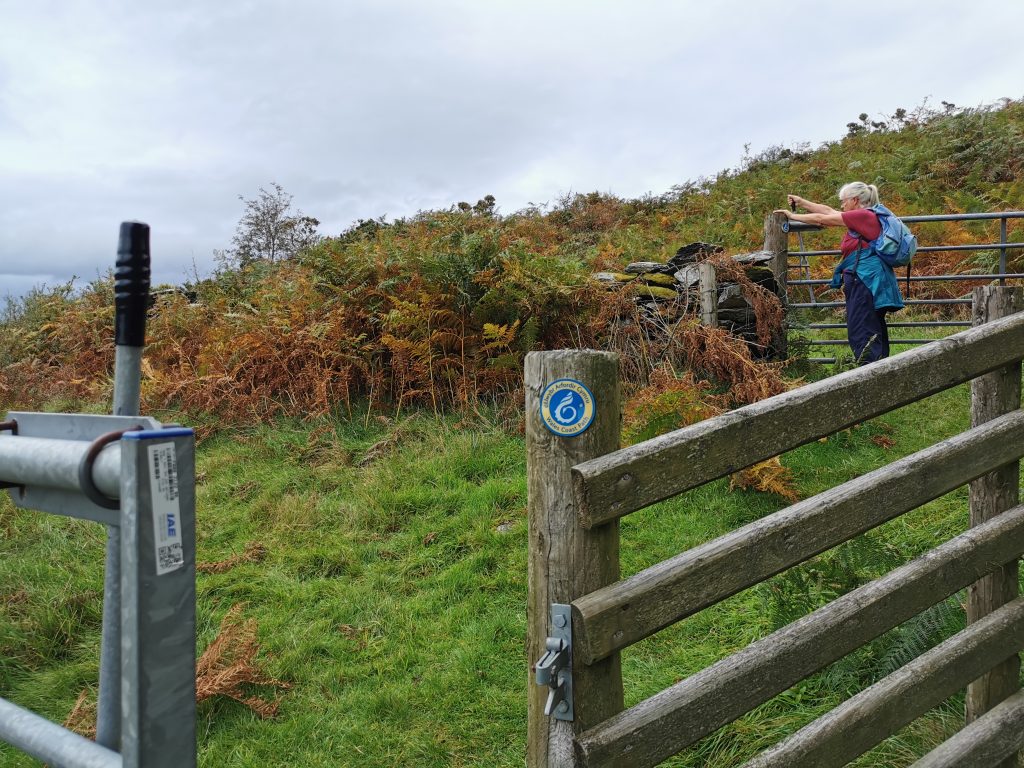
We walked without speaking as the path rose steeply. I thought about a term that Hannah has recently introduced me to: soft fascination, the psychology theory that the effortless attention of watching natural processes can be restorative. The mixed woodland provided leaves of every shape, size and colour – above us, around us, and on the ground. An exquisite design that never repeated. There were highlights of many different types of berry, and slivers of bright blue sky above, reflected in the glassy river.
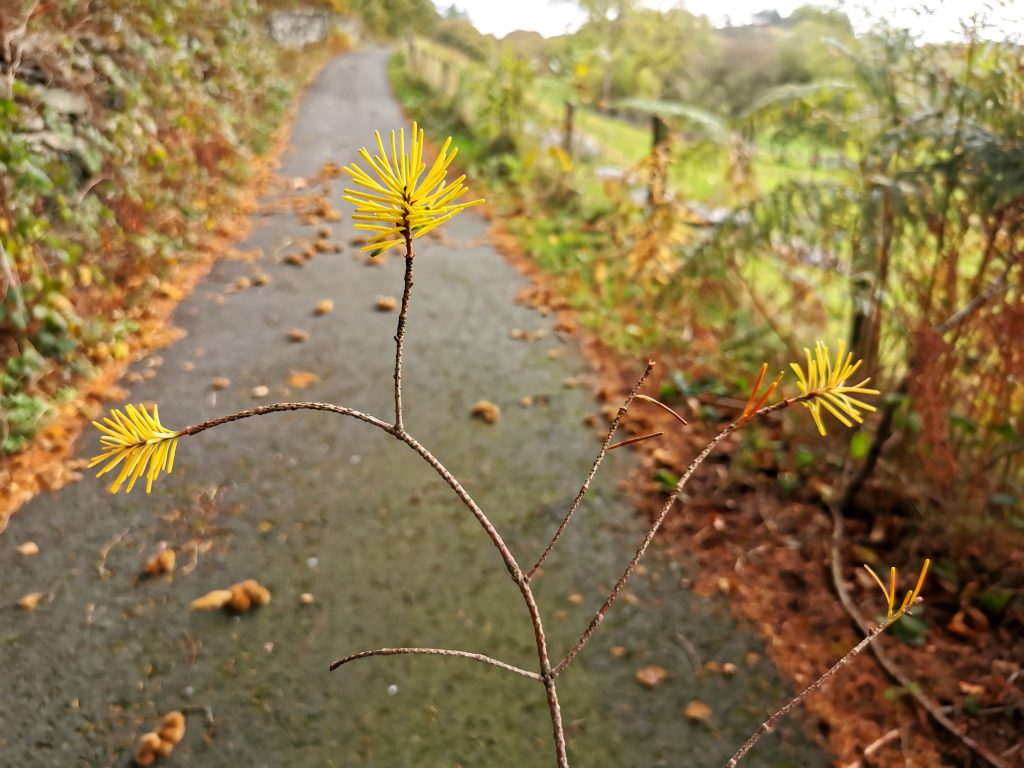
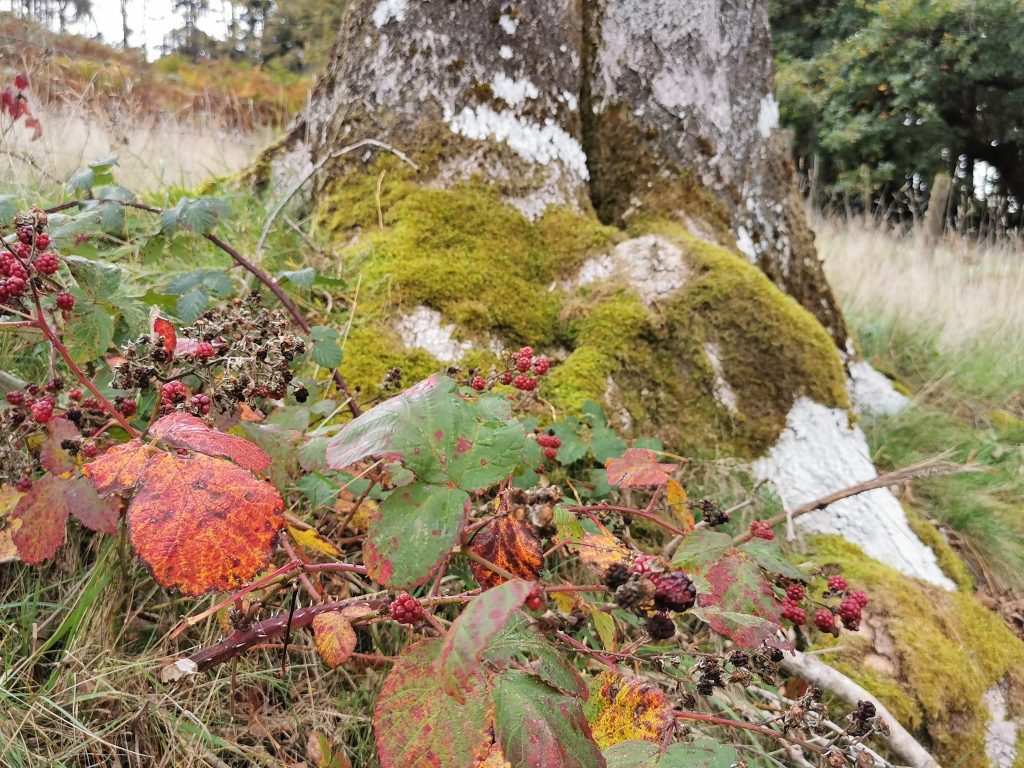
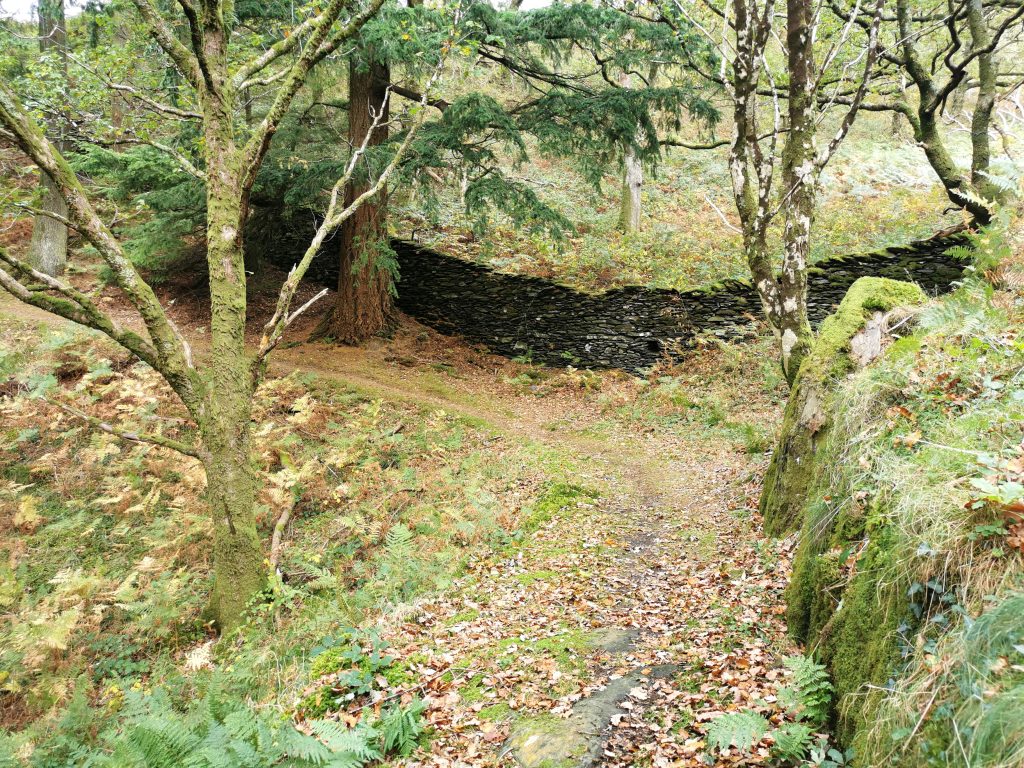
At 300 meters we levelled off and conversation began, gently. How are the children getting on? What shall we do at half term? Could you use some cabbage seedlings? Isn’t the first frost late? Is Granny ok? A familiar, comforting sorting of perennial concerns. Taking verse and chorus in turns…
Then… equally gently we begin enquiring into my latest spell of misery. What does it feel like? Why now? What could be done? Because we are walking the uncomfortableness of subject matter can be transmitted through feet to earth: earthed. The route donates an exoskeleton of purpose and direction. Walking means no need for eye contact, and questions can be explored as slowly as necessary, with pauses to admire the treasures that nature offers for distraction and solace. A trembling spider’s web; an iridescent beetle; a sudden long sightline.
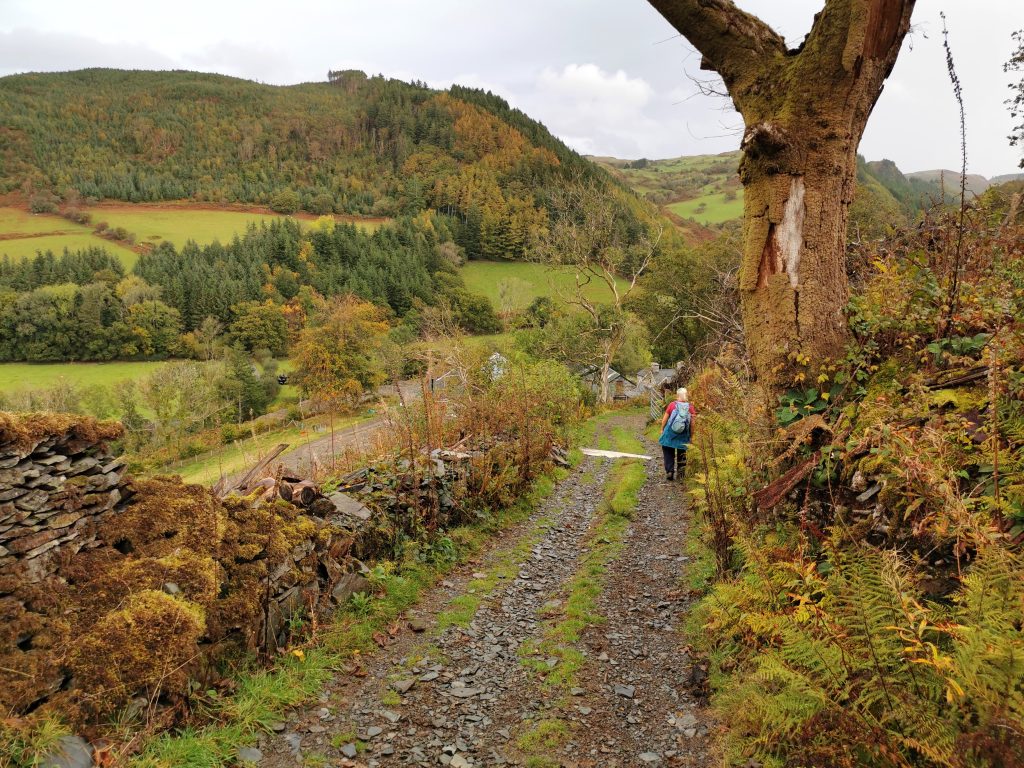
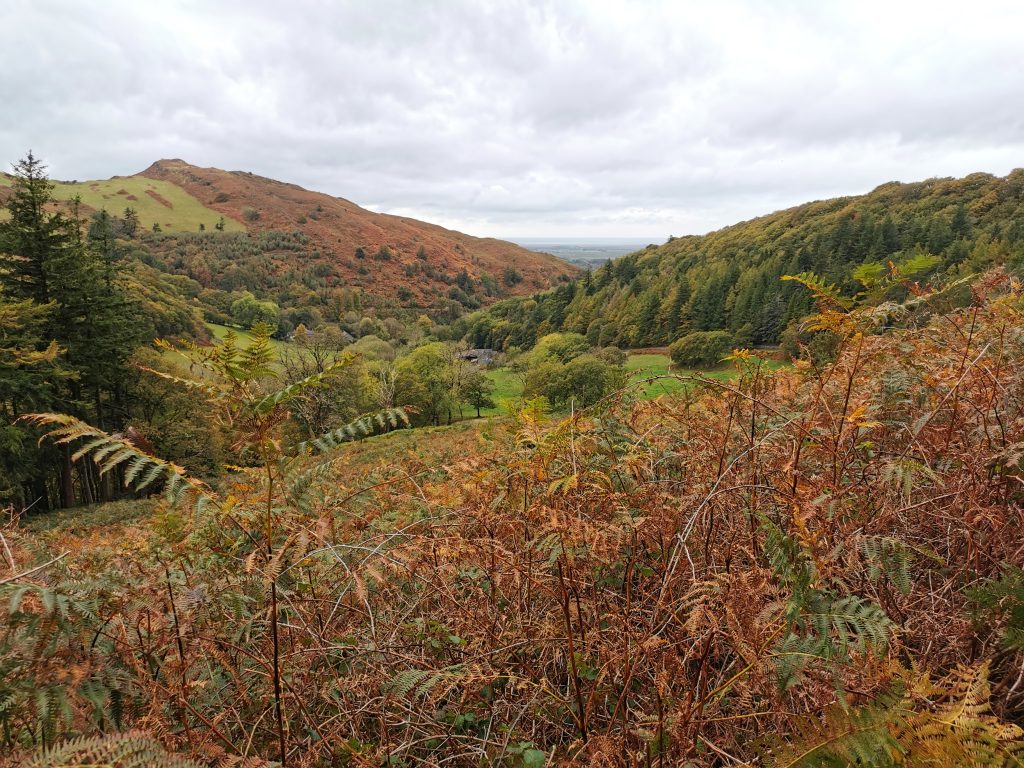
I am helped to try to put the wordless despair into words. And as I do, the despair loosens its grip a little bit, and I can begin to look it in the eye.
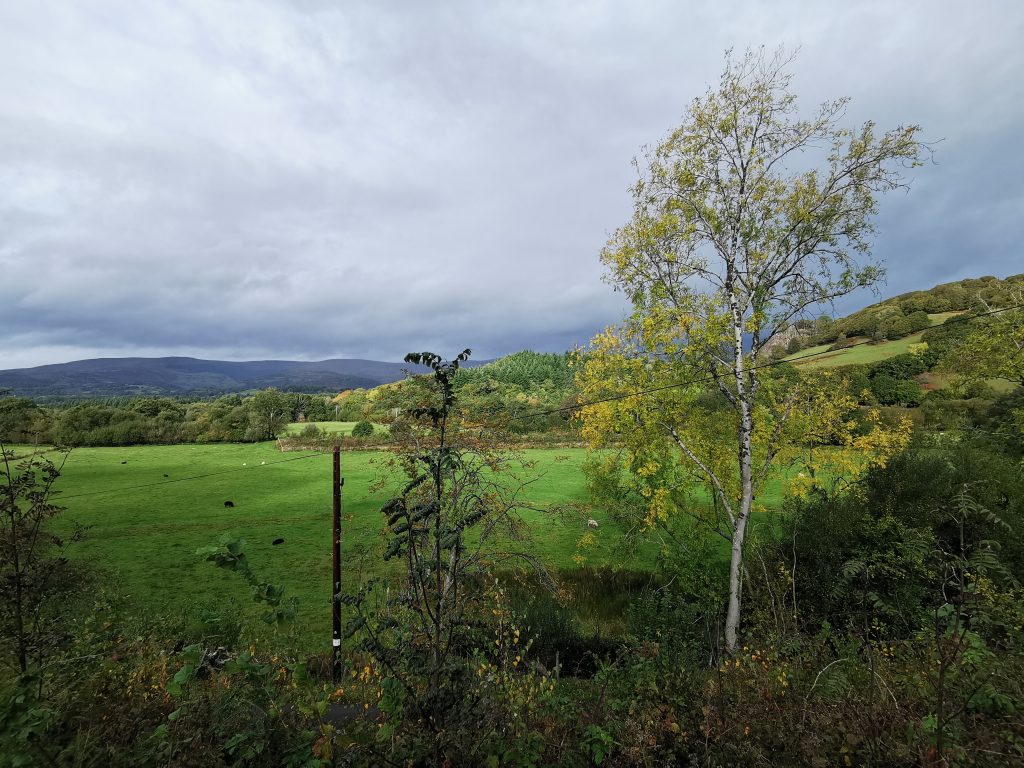
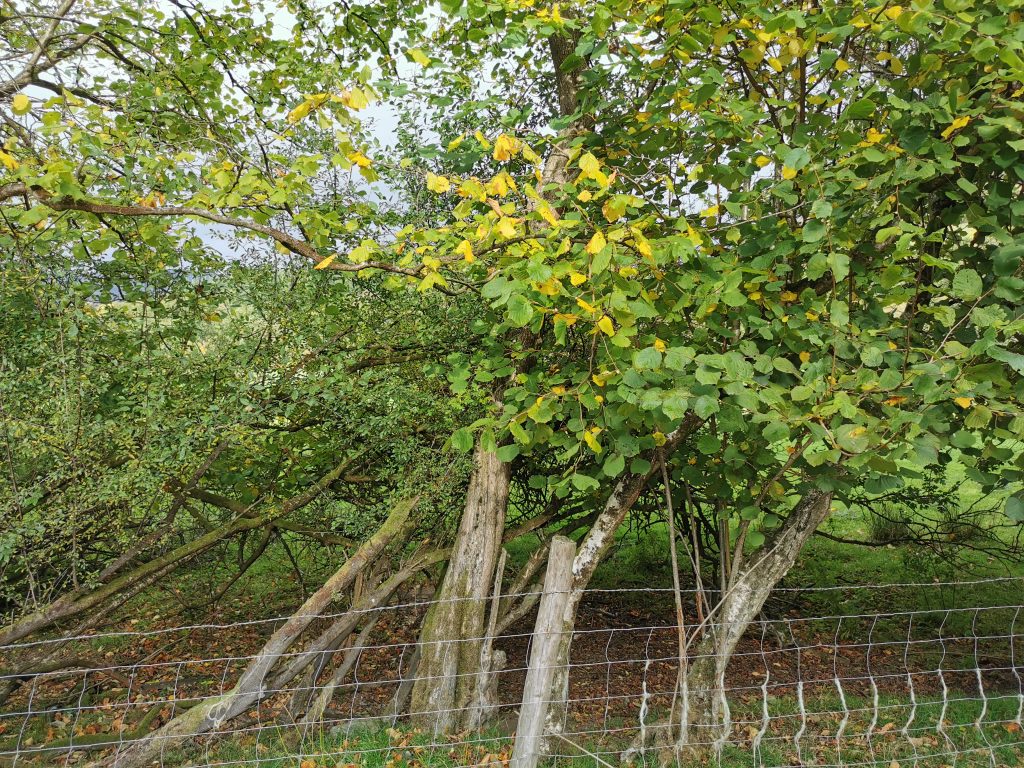
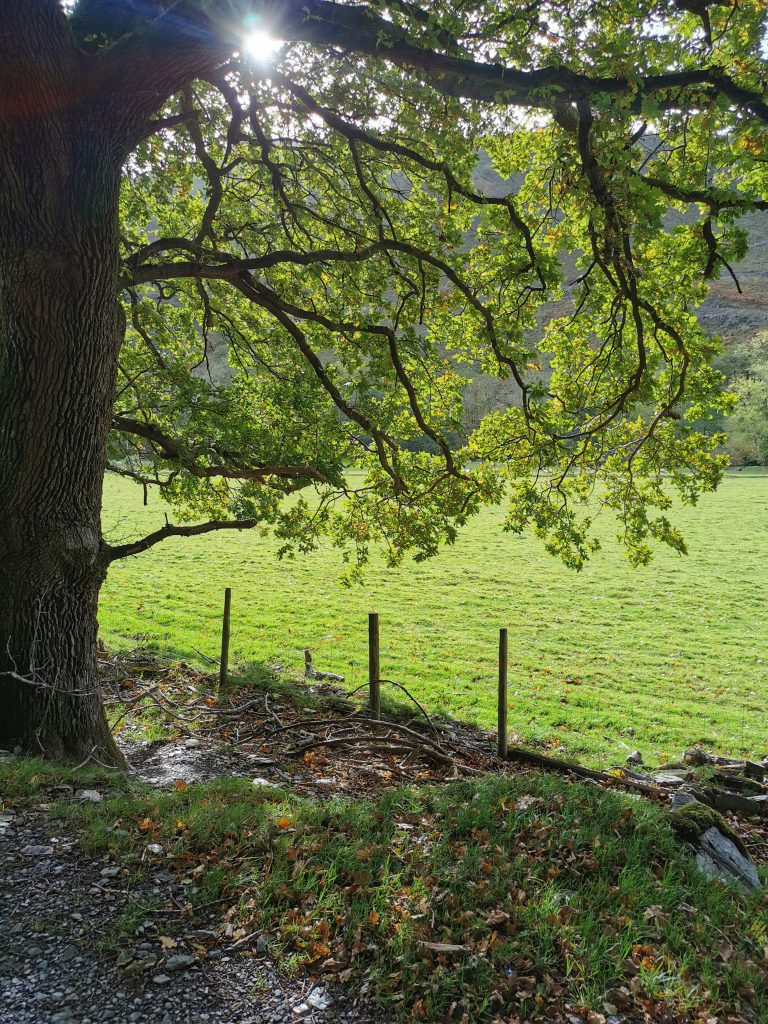
We reach a clearing with horizontal logs, and stop to eat in comfortable, contented companionship. Further on a strange experience awaits us: the smouldering, smoking remains of a huge fire formed of stacked timber, with empty oil cans strewn around. Arson? The sight and smell are a disturbing mystery.
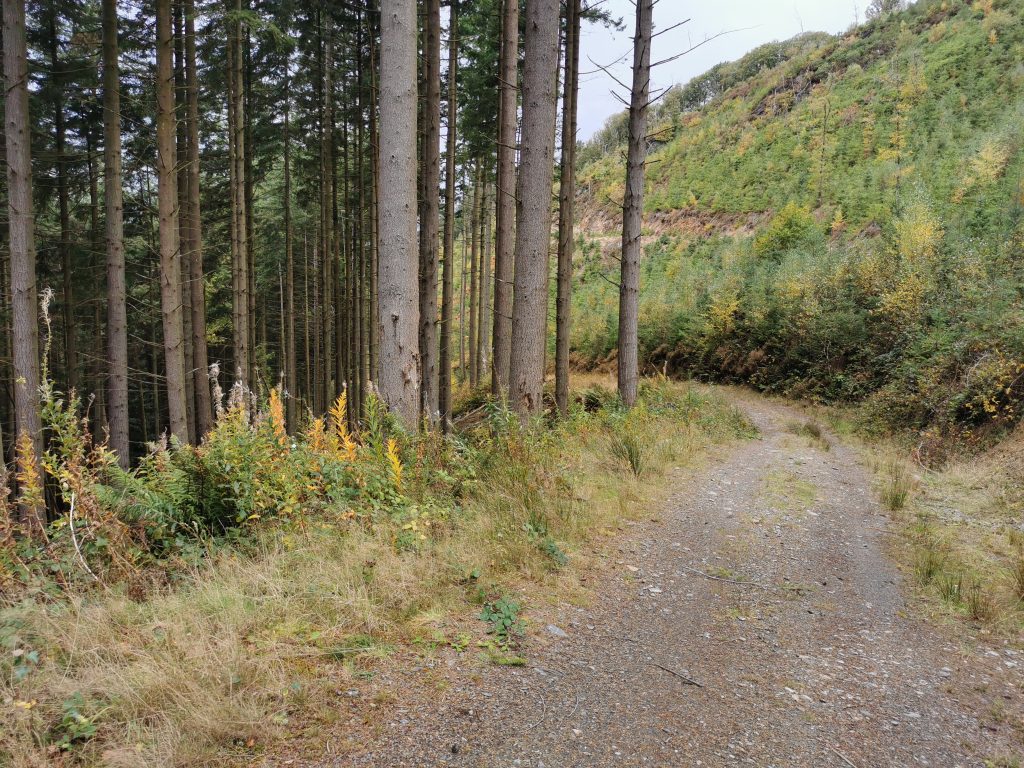
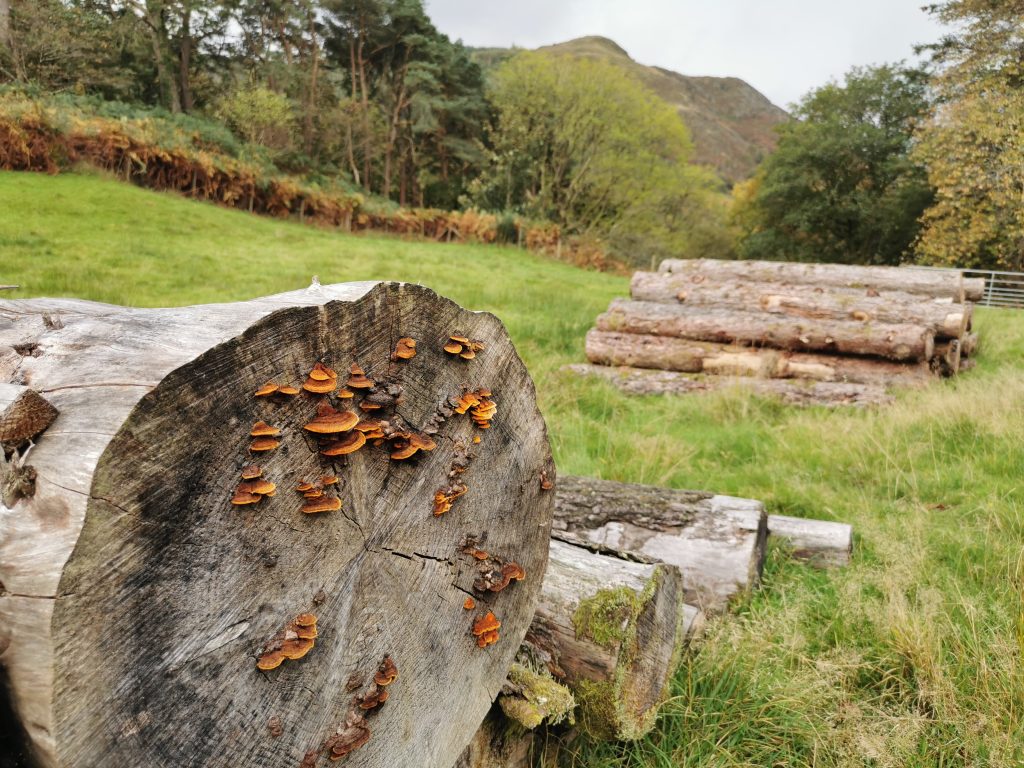
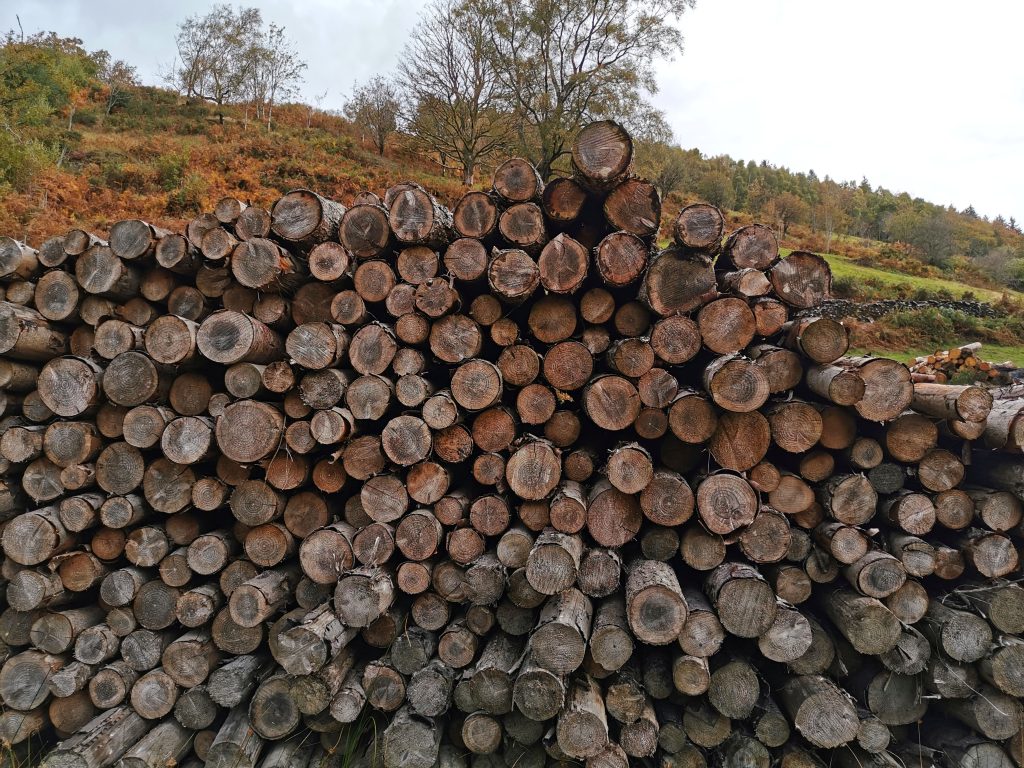
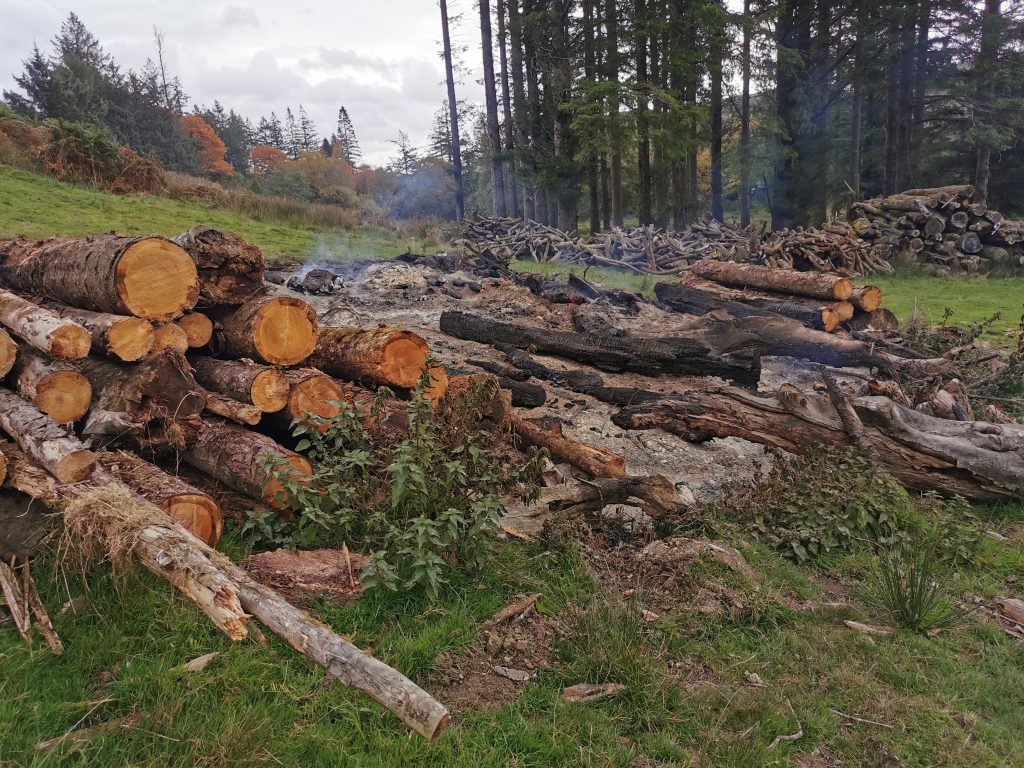
From here our path continues to the beautiful Llyfnant valley. I imagine the million bluebell bulbs, dozing beneath the fallen leaves. And as we descend towards Machynlleth we start to hurry a bit, as we sense everyday life pulling at us. The enchanted world of the woods is falling behind us and we hear vehicles and voices.
The train is already at the platform as we reach the station. The journey to Dyfi junction is exactly the length of a shared chelsea bun.
And was my depression cured? No. But it was eased. There was relief. And new ideas emerged through walking and talking and listening. If you are wondering how to help a friend who is depressed or similar, a walk could be just the thing to offer. Versatile, the walk can be bespoke – long or short, strenuous or gentle, quiet or talkative. The one thing that is particularly hard for the sufferer is to ask for what they need, or to initiate action. The suggestion of a walk may be the perfect gift. It was for me.”
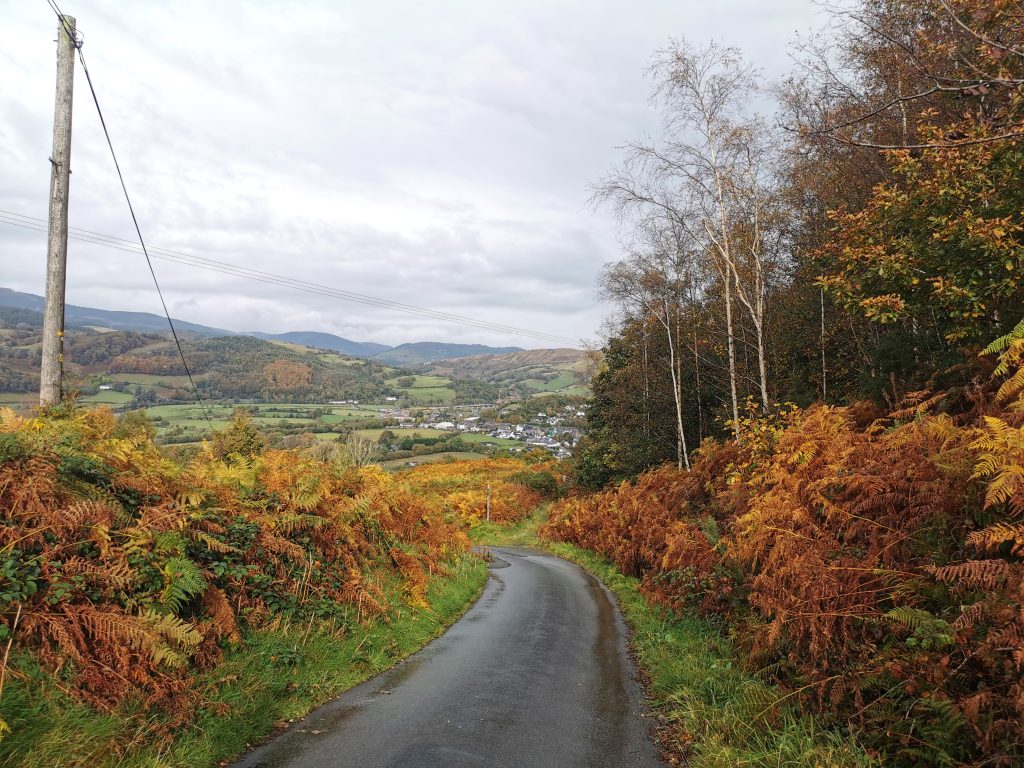
- There are more stories in our archive of how walking helps mental health. Read about Dima’s experience as a refugee from Syria, and coming to terms with her amputation here, or this interview with Ingrina Shieh in which she talks about how walking eases anxiety. There’s an account of a walk with the Proper Blokes Club here, and their London social walks here, and the film The Forgiving Path touches on the benefits of walking to overcome loneliness and how walking has helped a variety of people in Bristol to feel connected to their communities and fellow human beings
- Read more about Slow Ways’ Hannah’s mum Jo in this account of them not managing a long Rhinogs Slow Way as part of Jo’s 70th birthday multi-day walking and wild camping challenge